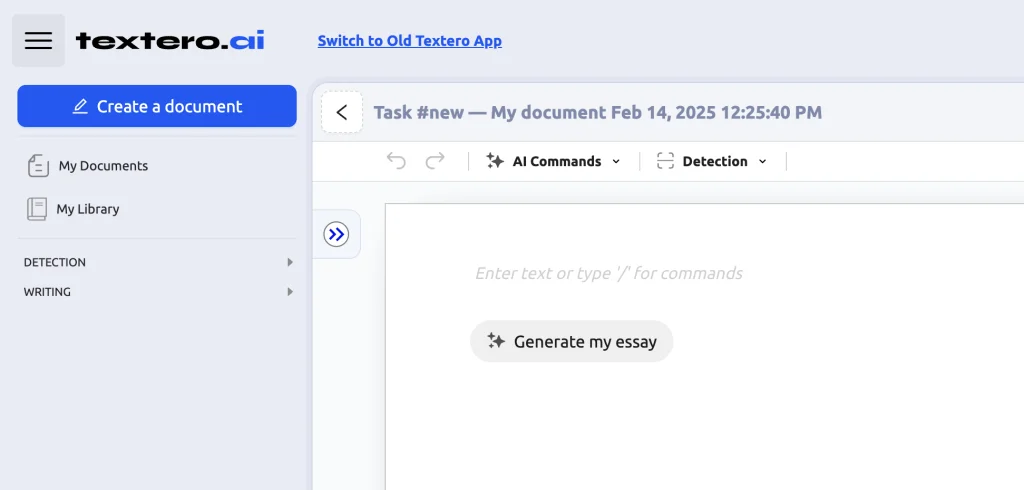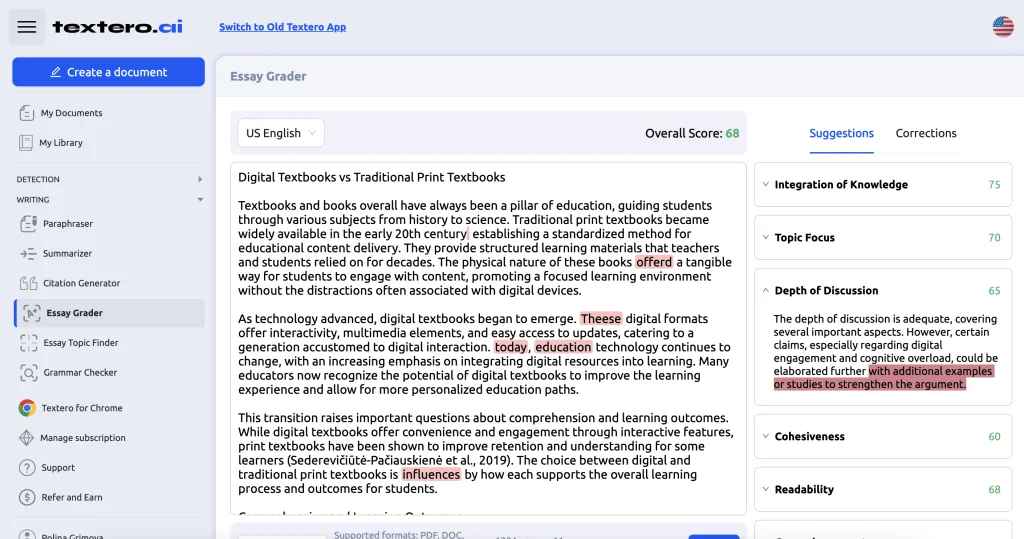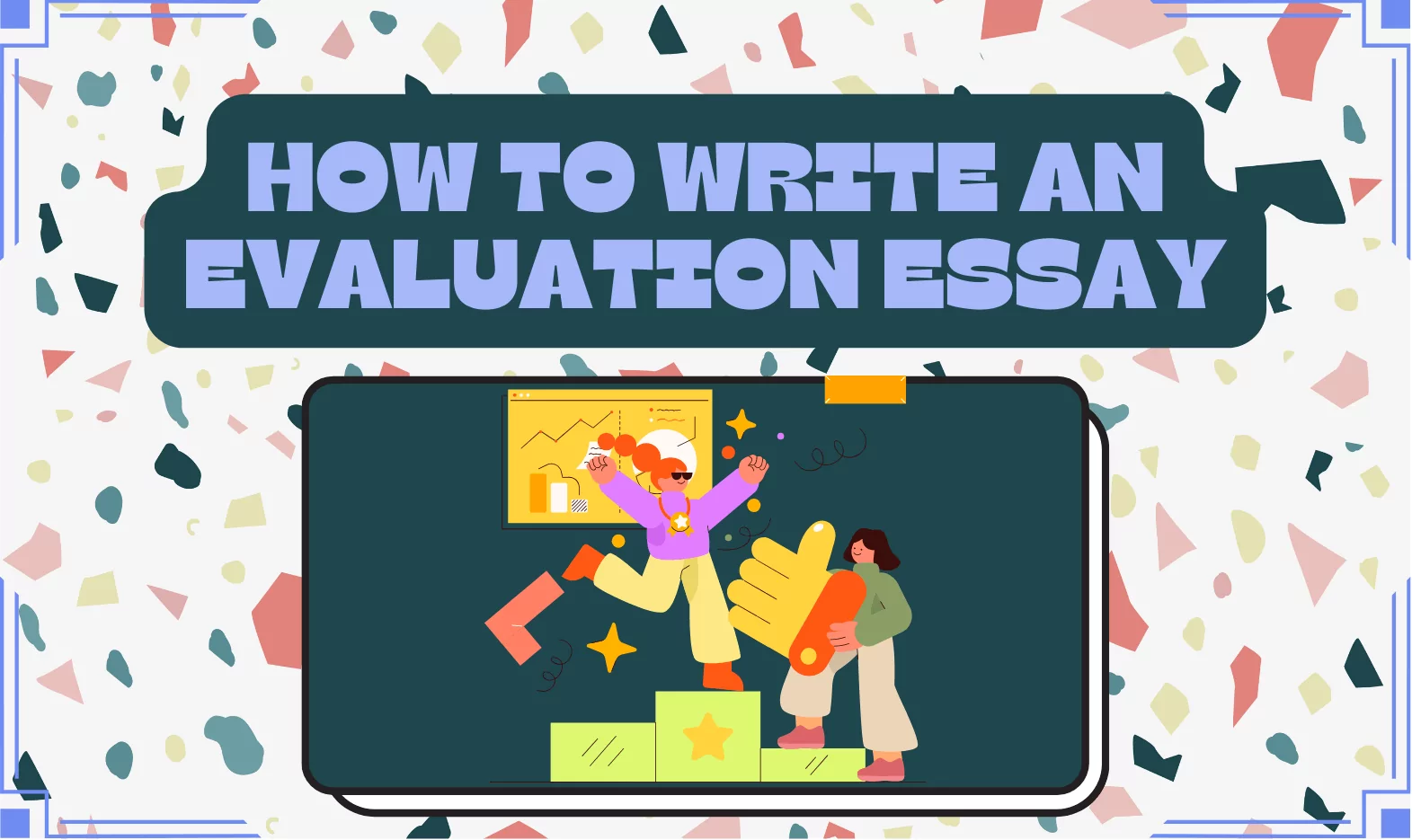Have you ever written a movie review on IMBD? Or maybe you have recently left your opinion under a viral TikTok video? If you have done anything from these above, you have practically tried writing an evaluation piece. The only main difference is that in terms of evaluation essay examples, the writing is much longer and more elaborate. It also usually follows a more formal writing style and format. However, as a separate essay type, it has its own structural nuances and thus may be a bit tricky to complete on the first try. No worries though, because in this article you will find all the important details about how to create an outline and write an evaluation essay as well as which aspects you should pay attention to during the work process.
What is An Evaluation Essay?
An evaluation essay is a form of writing where the author assesses a particular subject, event, or phenomenon based on a set of criteria. The aim is to provide an unbiased and well-reasoned judgment of the topic in question. Unlike a review, which may be more subjective, an evaluation essay requires the writer to provide evidence and reasoning to support their assessments. You’re not just telling your friend, “This movie was awesome!” Instead, you’re breaking down the elements that made it awesome (or not so awesome) and helping them see why your judgment makes sense. The purpose is to inform the reader, helping them understand the value, significance, or quality of the subject matter.
So, what exactly makes an evaluation essay? There are four key components: criteria, judgments, evidence, counterarguments, and credibility.

- Criteria
This is where you set the bar for what you’re evaluating. Let’s say you’re reviewing an app. Your criteria might include things like the user interface, how well it functions, and whether it’s worth the price. These are the specific aspects you’ll focus on to assess the app. The more clearly you define your criteria, the easier it is for your readers to get where you’re coming from.
- Judgments
Once you’ve laid out your criteria, it’s time to make your call. This is your actual evaluation based on the criteria you’ve set. For example, if you’re evaluating a coffee shop, you might judge it based on the quality of the coffee, the vibe of the place, and the service. But don’t just stop at your judgment—explain why you’re making that call (which scoring you gave for each of the aspects, for example).
- Evidence
Here’s where you back up your judgment with some solid proof. It’s not enough to say, “The coffee was amazing.” What made it amazing? Was it the rich flavor, the perfect temperature, or the barista’s skill? Providing specific examples or facts makes your argument stronger and your evaluation more convincing.
- Counterarguments
A good evaluation essay also takes into account other perspectives. Maybe the coffee was great, but the service was slow. By acknowledging potential counterarguments, you show that you’ve thought critically about your evaluation. It makes your essay more credible and shows that you’re not just being one-sided.
- Credibility
Speaking of credibility, this comes from using reliable sources, presenting your argument fairly, and being upfront about any limitations in your evaluation. In the example of the coffee shop, it helps if you’ve visited a variety of similar places or have a decent understanding of what makes a good cup of coffee. This shows your readers that you know what you’re talking about and that your evaluation is grounded in real experience, not just a one-time visit.
So, to sum it up, the main point of a good evaluation essay is to give a thoughtful, well-supported opinion. You’re guiding your readers through your thought process, showing them how you arrived at your conclusion, and making sure they understand your perspective.
Creating an Evaluation Essay Outline: What You Should Know
The outline is important in any type of writing. However, it plays an even a larger role when it comes to presenting a thought-out and precise evaluation that will in the end support your own opinion on the matter. Here’s what your outline should typically include:
- Introduction
- Hook: Start with a compelling opening sentence to win over the reader’s attention.
- Background Information: Provide some context about the subject you’re evaluating.
- Thesis Statement: Clearly state your evaluation, summarizing the main criteria you will use to assess the subject.
- Body Paragraphs
- Criteria: Each paragraph should focus on one criterion you’re using for evaluation.
- Evidence: Support each criterion with evidence or examples.
- Judgment: Explain how the evidence supports your evaluation for each criterion.
- Conclusion
- Restate Thesis: Summarize your main points and restate your evaluation.
- Final Thoughts: Offer any concluding remarks or suggestions for further consideration.
Writing an Evaluation Essay Step-by-Step with Textero
Now, we’ve covered the basics: the structure and main characteristics of the evaluation essay as a type of writing. The logical question is, how you should go about writing the essay so as not to lose the train of thought and present all the facts. Below you will see exactly how to do that.
1. Describe the Evaluation Criteria
First things first, what you need to do is establish the criteria by which you’ll be evaluating your subject. These criteria are the specific angles you’ll use to analyze the different aspects of whatever you’re evaluating. Let’s get back to the example of the essay about a coffee shop. Your criteria, in such a case, might include:
- the quality of the coffee,
- the atmosphere,
- the service,
- and the overall value for money.
These will serve as the foundation for your judgments, so take the time to brainstorm and define them clearly before you begin writing.
2. Write a Plan
With your criteria in hand, the next step is to create the outline that was previously mentioned. This sort of a “map” will keep you on track and help make sure that your essay flows logically from one point to the next. Let’s imagine, you are writing about the debate between digital and printed textbooks. Everybody has to start somewhere, right? Untangle the mess of ideas with Textero by creating a separate document. Start by outlining the main ideas you’ll cover in each body paragraph, each corresponding to one of the criteria you’ve established. From this point on, jot down all ideas you can think of, organize them by paragraphs, highlight points, add lists — everything to prepare a good base for your future paper.

Think about the order in which you want to present your arguments and how you’ll transition between them. This will help you better see the overall flow of the narrative and allow you to express your thoughts more logically.
3. Write the Evaluation Essay
Now that you’ve got your plan, it’s time to get writing! Start with a strong introduction that grabs your reader’s attention and clearly states the purpose of your evaluation. Then, move into the body paragraphs. Follow the structure discussed earlier: introduce the subject, make your judgment, apply your criteria, and provide evidence to support your opinion. Be sure to make your reasons clear and compelling, and guide your reader smoothly from one point to the next.
If you feel stuck, you can create your first draft with Textero’s AI Essay Writer free tool and go from there. We can continue with the “Digital vs Printed Textbooks” from the previous essay example. Click “Create document” to start a new file, then click “Generate my essay”.

From there, you will see a window pop up; fill in the instructions, based on the ideas you have. The more details you provide, the better Textero will reflect it in the paper, so try to specify as many things as you have. You can also ask Textero to provide sources or leave them out entirely. Here’s what it can look like:

After filling it out, press the “Generate” button — Textero will start working on your draft right away. A couple of minutes will pass, especially if you choose more pages, but then the essay should be ready!

Now, you can edit, paraphrase, shorten and expand your text, polish your arguments, and perfect the tone of voice to better match your requirements. Textero will give you a nudge in the right direction, but then you’re at the wheel!
4. Write the Conclusion
Finally, you can put an end to your writing by summarizing the main points of your essay and restating your overall judgment. Reflect on the significance of your evaluation and its broader implications—what does your assessment say about the subject as a whole? Leave your readers with something to dwell upon. It might be a thought-provoking question, a call to action, or a final insight that ties all the parts of your essay together.
5. Review the Finished Essay
Before you hit submit, take some time to review and revise your essay. Check for any grammatical errors, typos, or awkward sentences that could distract from your argument. Make sure your essay flows smoothly from start to finish, and that your ideas are well-supported by evidence. It can be hard to spot mistakes after spending so much time on writing, so give it a thorough evaluation with Textero. Just click the “Essay Grader” tool on the left sidebar, paste in your text, and receive in-depth feedback on your document!

With just a click, you can also check the “Corrections” to see changes in grammar and punctuation recommended by Textero. Wipe out any traces of misspelled words or incorrect punctuation.

Don’t forget to double-check that you’ve covered all the evaluation criteria you set out in the beginning. Once you’re confident that your essay is complete, give yourself a well-deserved pat on the back—you’ve just written a thorough and thoughtful evaluation essay!
What to Pay Attention to to Reach The Higher Grade
Even when you’ve chosen your topic, developed your ideas, and laid out the structure of your evaluation essay, there’s always that lingering question: “Have I covered everything?” Understanding what professors look for when grading your evaluation essay can help you feel more confident about your work and make sure you’re not missing anything important. So, if you want to reach that higher grade, check out the criteria below that is most of the times considered when grading your papers.

- Clarity and Coherence
Why It’s Important: Clarity and coherence are the foundation of effective communication in writing. If your essay is well-organized and easy to follow, your professor will be able to understand your arguments without getting lost in confusing phrasing or jumbled ideas.
What to Check: When reviewing your essay, make sure your ideas are laid out in a logical order. Each paragraph should build on the last, and transitions between sections should be smooth and natural.
- Thesis Statement
Why It’s Important: The thesis statement is the heart of your evaluation essay. It presents your overall judgment or evaluation of the subject and sets the tone for the entire piece. Professors look for a clear and concise thesis because it shows that you have a focused argument and understand the purpose of your essay.
What to Check: Make sure your thesis statement is prominently stated in your introduction and that it clearly conveys your main evaluation.
- Use of Evidence
Why It’s Important: Evidence is what makes your evaluation credible. Professors expect you to back up your judgments with relevant examples, facts, and arguments that demonstrate critical thinking skills. Without strong evidence, your essay might come off as opinionated rather than well-reasoned.
What to Check: Review each of your main points to ensure they are supported by concrete evidence.
- Depth of Analysis
Why It’s Important: Depth of analysis separates a basic evaluation from an insightful one. Professors want to see that you’ve engaged deeply with the subject, exploring its complexities and nuances rather than just scratching the surface.
What to Check: Ask yourself if you’ve provided a thorough analysis. Look for areas where you can explore underlying themes, implications, or connections.
- Critical Thinking Skills
Why It’s Important: Critical thinking is a key skill that professors try to cultivate in students. They want to see that you’ve thought acutely about the subject, considered alternative viewpoints, and addressed potential counterarguments.
What to Check: As you review your essay, look for places where you’ve considered other perspectives or acknowledged possible criticisms of your evaluation.
- Use of Language and Style
Why It’s Important: Good writing means you know how to say what you want to say. Most educators look for essays that are well-written, with clear, concise, and engaging language.
What to Check: Proofread your essay carefully for any errors in grammar, punctuation, or spelling. Beyond technical correctness, try to write in an engaging and appropriate tone of voice and writing style
- Originality and Insight
Why It’s Important: Originality shows that you’re bringing something new to the table, rather than just repeating what others have said. Professors appreciate essays that offer fresh perspectives or innovative interpretations because they demonstrate creativity and deep engagement with the subject.
What to Check: Reflect on your essay and ask yourself if you’ve added any original insights or perspectives. Are you saying something new or looking at the subject in a way that others might not have considered?
- Compliance with Instructions
Why It’s Important: Following the assignment guidelines is non-negotiable. Your lecturer provides specific instructions for a reason, and failing to comply with them can result in a lower grade, no matter how well-written your essay is.
What to Check: Double-check the assignment guidelines to ensure you’ve met all the requirements. This includes word count, formatting, and any specific instructions related to the content or structure of your essay.
Conclusion
Academic writing can be challenging, and this is where our platform comes in. We have created a large pool of helpful tools, like an online literature review generator, to help you handle any paper effectively. Writing an evaluation essay, aim to construct a well-reasoned, thoughtful analysis that guides your reader through your perspective with clarity and insight. Your main goal is to craft an essay that informs yet at the same time challenges your reader to see the subject in a new light. With the right approach, you can create a compelling piece that stands out and meets the high standards your professors are looking for.
FAQ
How should I start an evaluation essay?
Start with a hook to grab the reader’s attention, followed by some background information on the subject, and end with a clear thesis statement that outlines your evaluation.
What are the 5 key features of an evaluation essay?
The five key features include a clear thesis statement, well-defined criteria for evaluation, solid evidence to support the evaluation, balanced analysis, and a strong conclusion.
How to write an evaluation report?
An evaluation report follows a similar structure to an evaluation essay but is often more detailed and may include additional sections like methodology, findings, and recommendations. Start with an introduction, followed by a detailed evaluation, and end with conclusions and recommendations.
How to end an evaluation essay?
The best way is to end by summarizing your main points and restating your thesis in light of the evidence you’ve provided. You can also offer final thoughts or suggestions for further consideration.







 Built-in AI detector
Built-in AI detector 